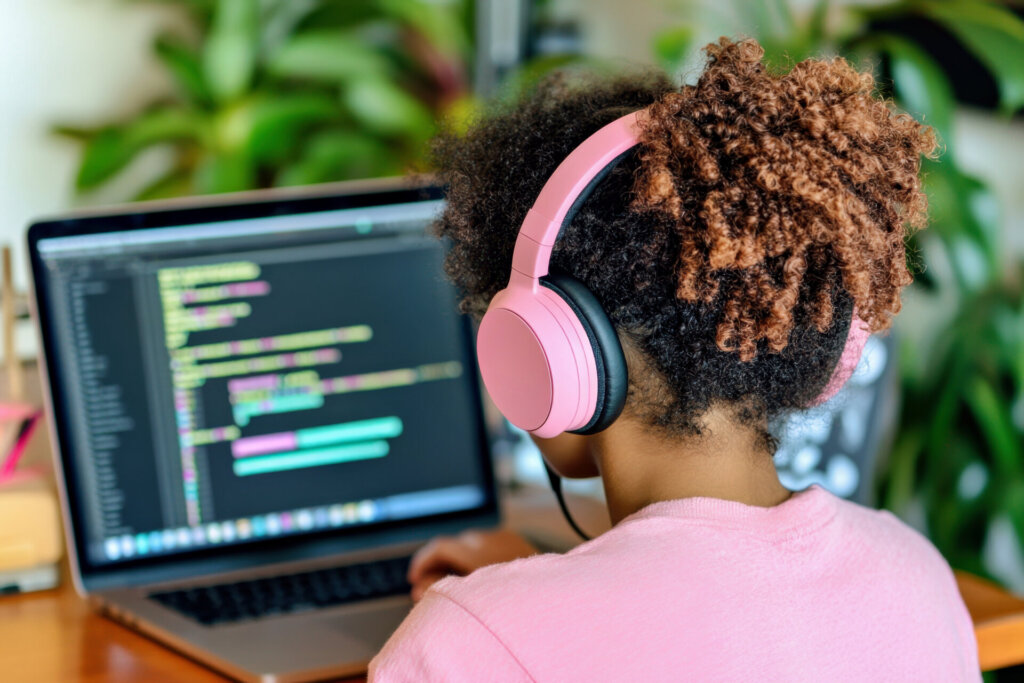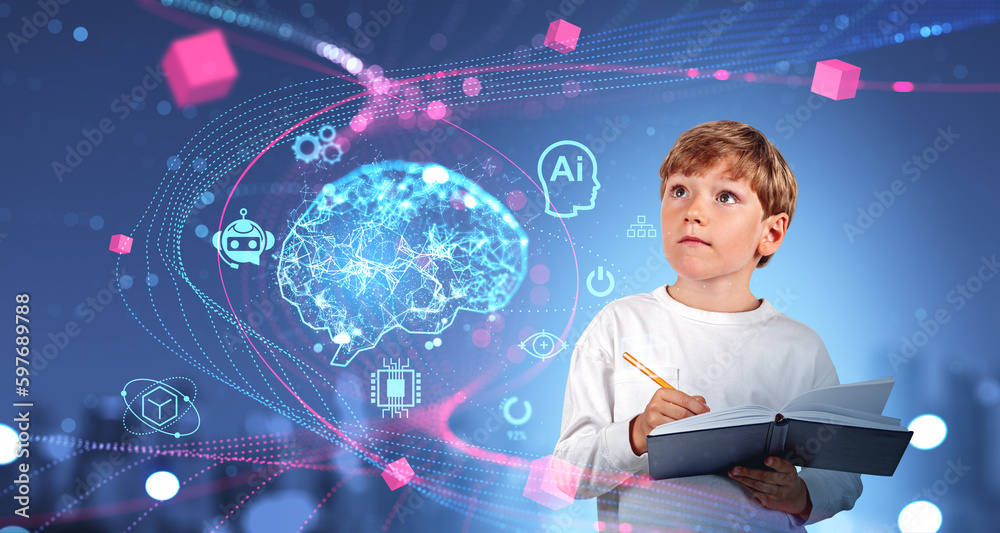A recent White House policy announcement outlined plans to mandate Artificial Intelligence in K-12 education, a significant shift from the previous model where such decisions were largely left to individual schools’ discretion. But with big changes happening to the Department of Education, nobody’s quite sure how this AI integration will actually play out or who will guide it.
Despite the unknowns, one thing feels certain: a significant transformation in education is coming, set to reshape learning in profound ways. For students with ADHD and other executive function challenges, this change brings both immense promise and potential pitfalls, making the path forward anything but clear.
The Hope: Personalized Learning Potential
What if AI could truly level the playing field for students with ADHD? Imagine learning pathways tailored to an individual’s pace and interests, making school feel relevant instead of like another arbitrary hoop to jump through.
Think of AI generating mind maps for visual learners, providing audio summaries for students struggling with reading, helping students practice tricky social interactions, or even developing personalized systems to improve executive functions like organization and managing impulsivity. How different and purposeful might my own education have felt with that kind of personalized scaffolding?

Quick Feedback and Judgment-Free Questions
One of the biggest potential wins lies in AI’s ability to create quick feedback loops. The ADHD brain thrives on immediacy, and AI tools can offer instant responses. This is a stark contrast to the traditional model where waiting weeks for essay feedback can feel disconnected and like a lost opportunity. Such immediate interaction keeps engagement high and feeds the dopamine-driven motivation system.
Also, new research shows students feel less self-conscious asking AI the “silly” questions they’d hesitate to ask a teacher or tutor. Removing that fear of judgment can foster more curiosity and understanding with our at-risk students. The potential for personalized executive function support, utilizing tools that adapt to help with organization and planning, feels like a significant upgrade from the “use your planner” approach.

What Scares Educators: Foundational Learning and True Expertise
While the potential of AI in education is exciting, many educators and child development experts have valid concerns, especially for younger learners. There’s growing worry that introducing AI too early, particularly in elementary and middle school, could disrupt the foundational learning built through hands-on experiences, face-to-face interaction, and trial-and-error problem solving.
Kids don’t just need information. They need time to question it, apply it, and connect it to real life. These skills require support and meaningful challenges. If we rely too much on AI to deliver content or solve problems, we risk weakening students’ ability to think critically, evaluate sources, and grow into independent learners.
This is especially true for students with ADHD. Deep learning and sound judgment take time, built through repeated opportunities to plan, reflect, and adjust. When we rely on AI, it will disrupt the learning process. What matters isn’t just what students learn, but if they’re building the executive function skills they need to be healthy and independent adults.
The Value of Struggle and the Risk of Over-Reliance
In college, I spent countless hours in the computer lab staring at a blank document, the cursor blinking as I struggled to find the right words to begin a paper. At the time, it felt endlessly frustrating, but now I understand that grappling with difficult ideas, hitting dead ends, and pushing through frustration helped build my resilience, improved my critical thinking, and shaped my character.
Struggle is not just a byproduct of learning; it’s often the point. If AI smooths over every bump, are we inadvertently robbing students of the chance to develop independence, resilience, and grit? The more I see students use AI, the more I fear our population will turn into the humans in Wall-E.
The biggest concern is problem-solving. On college campuses, ChatGPT is a common homework companion, with nearly 90% of students admitting to using it regularly. While helpful for starting assignments, if AI completes the bulk of the work, students lose opportunities to grapple with challenges themselves. We risk a future where, much like post-COVID social anxieties, a ‘problem-solving crisis’ emerges because students are not getting enough practice solving hard problems.
Beyond stunting problem-solving, the constant juggling of numerous digital tools can hinder the broader development of executive functions like planning and impulse control. Furthermore, relying heavily on digital interfaces means less time developing social skills.
Preparing for an Uncertain Future
The recent White House policy on AI in education has caused anxiety for many educators and families, largely because it’s still unclear how it will be implemented. Questions I have recently heard include:
- Are we actually going to mandate and make sure that kindergarten teachers are teaching AI?
- What AI skills do you even teach to a kindergarten student?
- How will teachers get the right support/training?
With so much uncertainty, one of the best approaches for older students and their families is to get curious and start experimenting with AI tools. Learn what they can (and can’t) do. This kind of exploration builds digital literacy and helps students use AI more intentionally, not just as a shortcut.
Here are a few real-life examples of how students with ADHD have used AI tools effectively in the past week:
- Used ChatGPT’s voice feature to role-play a conversation with a professor after sleeping through a class.
- Created an audio study guide for a test using NotebookLM.
- Uploaded a final presentation and rubric to Gemini to double-check that all requirements were met.
- Used Claude to better estimate how long tasks would take, helping them avoid overcommitting.
So, What Now?
For students with ADHD, AI in education is a doubled-edged sword. Personalized learning and executive function support offers significant benefits, but there are also valid concerns about the loss of foundational skills and the decline of critical thinking.
The recent policy feels rushed and we need a more thoughtful approach. AI should be used as a tool to support students with ADHD by building on their strengths and helping with their challenges. This requires intentional integration, effective teacher training, and a strong focus on maintaining problem-solving skills, meaningful relationships, and resilience in the learning process.
If you’re ready to explore how to harness AI for deeper, more personalized learning that truly works with the ADHD brain, learn more about our ‘Untapped Learning: Deeper with AI’ course.





